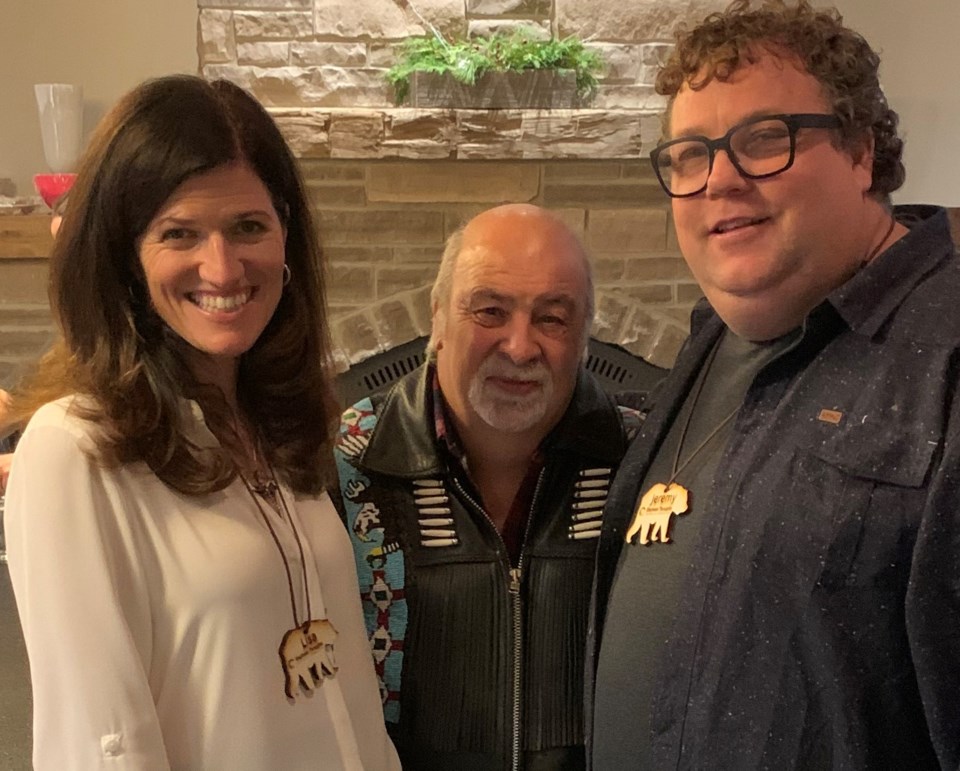Collingwood-based Elephant Thoughts is helping Canadian individuals and organizations introduce a new concept to the world: Indigenization.
The word Indigenization refers to bringing an Indigenous perspective to anything. This time, the Indigenization 2019 conference focused on the tech and coding world.
Jon Corbett, one of the presenters at the Elephant Thoughts Indigenization 2019 conference, is a professional computer programmer and Canadian Metis media artist.
He coined the phrase Indigitalization and is combining his art and computer programming for the cause.
Indigenization refers to bringing an Indigenous perspective, and Indigitalization refers to an Indigenous perspective in computer programming and coding.
Corbett does beading portraits and is a self-taught programmer. One day while working on a beading project, he decided to create a computer program to tell him which colour of bead to use and in what order.
In creating the program he needed, he realized the default was for the program to tell him one row at a time, left to right. But that didn’t fit the beading pattern which alternates left to right, then right to left.
In fact, he had to write an “inefficiency” into the program for it to work for his needs.
“That’s where it started,” said Corbett. “I thought the only thing that would make this even better is if I could do this in my heritage language, the language of my grandmother: Cree.”
The idea became reality and now Corbett is a third-year PhD student at the University of British Columbia where his research is focused on the development of a Cree-based computer programing language, physical input devices for the Cree Syllabic Orthography, and specialized software for creating interactive media artworks from oral and/or transcribed Indigenous Storywork.
He said his work has involved more than just writing a new language, he’s had to ditch the philosophy behind computer programing and replace it with one founded in Indigenous teachings.
“Like the loop for beading, that activity within the computer is a single activity that does one thing without taking into consideration the whole,” said Corbett. “There’s no holistic view attached to that in the current programming panel. Indigenous computing framework favours cultural practices over computational efficiency.”
Corbett was one of the presenters at the Elephant Thoughts conference, and he said what stood out to him was the wide network of people who can work together toward Indigenization.
Lisa Farano of Elephant Thoughts said the conference was all about collaboration.
Each of the organizations invited received funding through Cancode, and are working to bring Indigenous perspective and presence to the coding world.
“To this end, the conference was a tremendous success,” said Farano. “By the second day we practically abandoned the very jam-packed agenda to make time for the team to take our work in the direction that best suited everyone.
"We believe we started something meaningful and important and hope the next conference will be hosted with everyone’s input from the start.”
The conference brought together 30 of the top digital tech education organizations – both Indigenous and non-Indigenous focusing on coding and robotics, all of whom work in Indigenous communities across Canada.
The conference was sponsored by the National Science and Engineering Council of Canada.
Farano said the organizations will continue to meet and discuss ideas through the year with the aim of more conferences in the future.
“The goals were mainly to bring this group of experts and elders from across the country together to collaborate on how we can collectively better serve the communities we work in through shared knowledge and resources,” said Farano.
Anyone working in this sector and interested in joining the regular working group calls can email Lisa Farano at [email protected].



